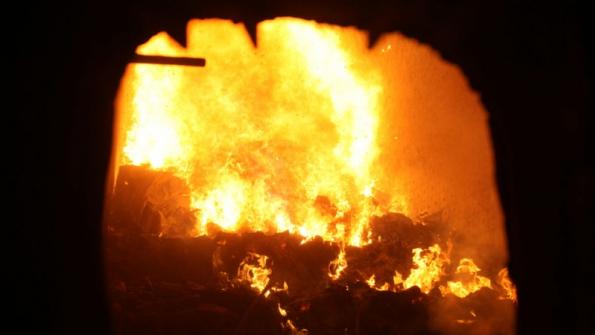Hospital waste disposal is a critical aspect of healthcare operations that requires careful management to ensure the safety of patients, staff, and the environment. Traditional methods of hospital waste disposal, such as incineration and landfilling, are not only harmful to the environment but also pose significant health risks. Therefore, innovative approaches to hospital waste disposal have become increasingly important in the healthcare industry in recent years.
One of the most innovative approaches to hospital waste disposal is the implementation of modern waste management technologies. These technologies include waste segregation, recycling, and waste-to-energy systems. Waste segregation involves separating different types of waste, such as hazardous, non-hazardous, and recyclable waste, at the source. This allows for more efficient disposal and treatment of each type of waste, reducing the environmental impact and the risk of harm to staff and patients.
Recycling is another innovative approach to hospital waste disposal. Many healthcare facilities have implemented recycling programs for items such as paper, plastic, and glass, which can significantly reduce the amount of waste that ends up in landfills or incinerators. This not only reduces the environmental impact of hospital waste disposal but also saves resources and reduces costs for healthcare facilities.
In recent years, waste-to-energy systems have also emerged as a promising solution for hospital waste disposal. These systems use advanced technologies to convert waste into energy, which can then be used to power the hospital itself or be sold back to the grid. This not only reduces the amount of waste that needs to be disposed of but also provides a sustainable and environmentally friendly energy source.
Another innovative approach to hospital waste disposal is the use of advanced sterilization technologies. Sterilizing medical waste before disposal is crucial to ensure that any harmful pathogens or contaminants are effectively destroyed. Advanced sterilization technologies, such as autoclaves and microwave systems, are more efficient and environmentally friendly than traditional methods of waste sterilization, such as incineration.
Furthermore, the use of biosafety measures and personal protective equipment can help minimize the generation of hazardous waste in healthcare facilities. By implementing stringent infection control protocols and prioritizing the use of reusable items instead of single-use products, hospitals can significantly reduce the amount of hazardous waste they produce, leading to more sustainable waste management practices.
In conclusion, it is clear that innovative approaches to hospital waste disposal are crucial for the healthcare industry to minimize its environmental impact and protect the health and safety of patients, staff, and the community. By implementing modern waste management technologies, recycling programs, waste-to-energy systems, advanced sterilization technologies, and biosafety measures, hospitals can significantly improve their waste disposal practices and contribute to a more sustainable and environmentally friendly healthcare system. As the healthcare industry continues to evolve, it is important for hospitals and healthcare facilities to prioritize innovative waste management practices to ensure a safer and healthier environment for all.



